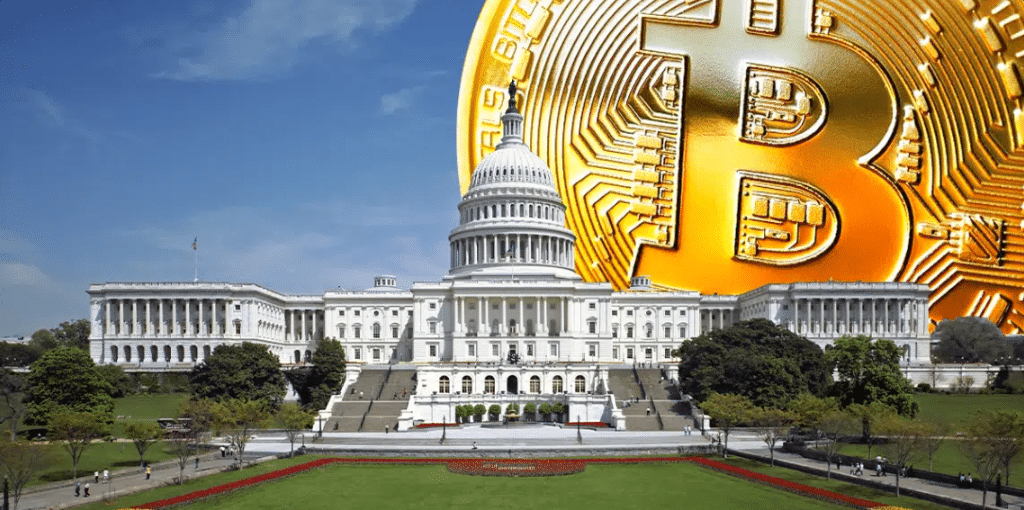In the midst of Donald Trump’s swearing-in process as president of the United States, which takes place on January 20, analysts are evaluating the Republican’s chances of implementing his campaign promises, including favorable regulation for bitcoin ( BTC).
The analyzes take into account that for the new president to carry out many of his plans he needs the support of other powers of the State, mainly the legislative branch. And given the composition of the Congress elected on November 5, it is expected that the president will have great support.
Trump has a Republican party that has closed ranks around his figure and that has a majority in both the House of Representatives and the Senate, forming what Americans call the “trifecta” or unified government.
In addition, the Supreme Court of Justice – which heads the third independent branch of the State – currently has a majority of six conservative judges (three of them appointed by Trump during his first term).
This means that things for Trump begin to work in the style of unicameral parliamentary systems, where a majority takes control of Congress and the government, acting as a unified whole.
The positions of support are evident considering that, since the installation of Congress on January 3, pro-cryptocurrency representatives have been appointed for key positions in the legislature.
In fact, the House Subcommittee on Digital Assets, Financial Technology and Artificial Intelligence, which is part of the Financial Services Committee, now packed with pro-cryptocurrency lawmakers.
Bryan Steil, a legislator representing Wisconsin’s 1st district in the House of Representatives is the new president of that subcommittee and from day one he committed to make the United States a leader in digital assets; while another well-known pro-bitcoiner, Tom Emmer, takes charge of the vice presidency.
The DoTheySupportIt site, which track The positions of various representatives on cryptocurrencies, offers a rough picture of who supports cryptocurrencies in Washington. The list presents statements in support of the sector of around 290 representatives (more than 66%) of a total of 435 that make up the Chamber.
Although the list mentions a large number of Democrats, the majority of cryptocurrency supporters are Republicans.

The trend extends to the Senate, where the main promoter of the creation of a bitcoin reserve, Cynthia Lummis, is now preparing to lead the first Senate cryptocurrency subcommittee, that will fulfill functions similar to those that operate in the House of Representatives.
The new Senate body depends on the Banking Committee, whose new president: Tim Scott, from South Carolina, has already said that “cryptocurrencies have the potential to democratize the financial world.”
This is how a large number of Republicans in Congress are in favor of a policy of laissez-faire and pro-cryptocurrencies in regulation. The party strives to contrast with Democrats, who tend to be more cautious.
In that sense, the official Republican platform established as a goal put an end “to the legal and anti-American offensive against cryptocurrencies by the Democrats.”
We will defend the right to mine Bitcoin and ensure that all Americans have the right to custody of their digital assets and to transact without government surveillance and control.
2024 Republican Convention Statement.
The first steps in this direction are already being highlighted, with the willingness of congressmen to investigate Operation Chokepoint 2.0. which was launched during the Joe Biden government.
Bitcoin could overcome partisan differences
In an age of hyperpartisanship, observers are skeptical about the Trump administration’s chances of passing cryptocurrency legislation. overcome partisan differences in Congress.
It must be remembered that Congress is the only part of the government that can enact new laws and change existing laws. Agencies of the Executive Branch issue rules or regulations that have the force of law, but are under the authority of laws enacted by Congress.
It also happens that the Republican majority is reduced to 217 against 215after Trump chose some representatives to fill other key positions in his cabinet.
Additionally, although bills originate in the House of Representatives, they also need to be approved with a majority vote (two-thirds) of the Senate to become law.
However, many analysts linked to the ecosystem see advantages, not only because the Republicans are the majority, but because the issue of cryptocurrencies It doesn’t feel as politicized and polarized. like other matters of national interest.
On this point, representative Tom Emmer thinks that cryptocurrencies They are not a partisan and controversial issue. such as matters related to abortion or the rights of trans people.
This is not a Republican or Democratic issue. This is an American issue, and I am confident that we will continue to work together, in a nonpartisan manner, to provide the regulatory barriers necessary to give digital asset entrepreneurs the confidence to innovate and everyday Americans the confidence to engage with this technology.
Tom Emmer, Vice Chairman Digital Assets Subcommittee.
In this way, although some analysts predict that the Trump administration will be forced to prioritize issues such as the economic crisis, energy resources and immigration problems, Emmer assures that bitcoin fits into Trump’s broader efforts. to stimulate the economy.
“We advocate for policies that empower ordinary Americans to control their financial future,” he said. He adds that by providing clear guidance for cryptocurrency companies, it is ensured that everyone can confidently interact with this technology.
A statement that possibly explains the fact that – as CriptoNoticias reported – the regulation of the sector has been considered as a priority topic for the new Trump administration. Hence, many of the numerous executive orders that Trump is likely to sign in his first days as president are expected to include Bitcoin.







Leave a Reply